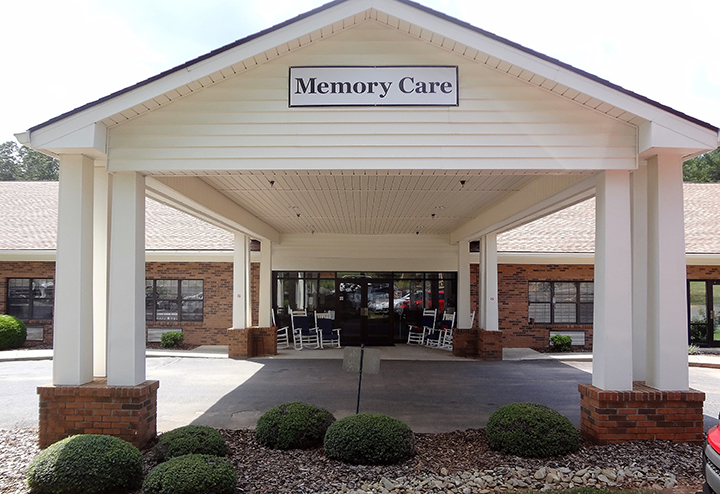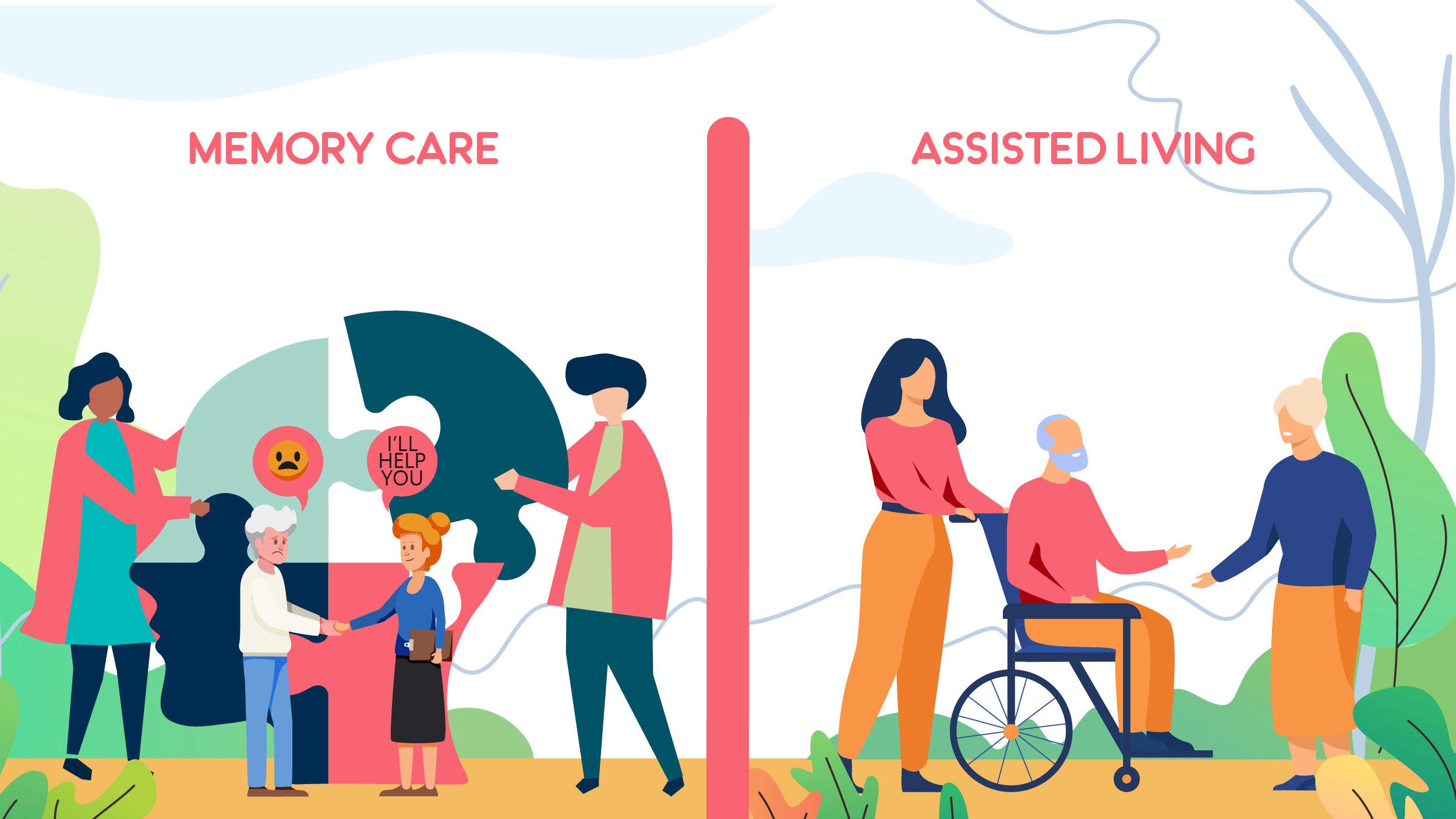Advanced Memory Support Solutions Offered with Alzheimers Care Charlotte
Wiki Article
Creating a Safe and Helpful Environment for Alzheimer's Treatment
The development of a supportive and risk-free environment for people with Alzheimer's is paramount in boosting their quality of life. This entails not only physical adjustments within the home, such as reducing risks and incorporating acquainted components, however additionally the application of organized routines and significant tasks that satisfy their cognitive demands. Understanding the psychological and emotional measurements of treatment can significantly affect their feeling of security and connection. Discovering these complex methods can reveal important understandings into effective caregiving strategies that might transform the day-to-day experiences of both caretakers and people.Recognizing Alzheimer's Demands
Regularly, people with Alzheimer's condition show an array of demands that call for customized techniques to care. As the condition advances, cognitive decline manifests in various ways, impacting memory, thinking, and also the capacity to do day-to-day tasks. Caretakers have to identify these advancing needs to offer suitable support and guarantee a higher quality of life for those affected.One critical aspect of understanding Alzheimer's needs is recognizing the significance of routine and experience. People often discover comfort in well established patterns, which can minimize stress and anxiety and confusion. Caregivers need to make every effort to create structured daily timetables that include purposeful activities aligned with the individual's capacities and interests.
Furthermore, efficient interaction is extremely important. Individuals with Alzheimer's may struggle to share themselves or comprehend intricate language. Caregivers need to utilize simple, clear language, use non-verbal signs, and method energetic listening to promote understanding and connection.
Finally, social and emotional demands can not be neglected. Providing opportunities for social communication and preserving partnerships can considerably enhance psychological well-being. Caretakers need to motivate involvement in community activities or household celebrations, promoting a sense of belonging and objective. Understanding these diverse demands is important for producing an encouraging care environment.
Designing a Safe Home
Developing a secure home for people with Alzheimer's condition is vital to minimizing risks and promoting self-reliance. The layout of the home need to prioritize security while enabling individual comfort. First, eliminate prospective hazards such as loose rugs, sharp objects, and clutter, which can lead to drops or mishaps. Guarantee that pathways are clear and well-lit, as proper lighting minimizes disorientation and improves movement.
Incorporating flexible features is additionally important. Install grab bars in shower rooms and near stairs, and take into consideration using non-slip floor coverings in damp areas. In addition, utilizing different colors for floors and wall surfaces can aid in identifying spaces, assisting to mitigate confusion.
Experience is very important for individuals with Alzheimer's. Individualizing the environment with acquainted things and photographs can strengthen a feeling of belonging and safety and security - Alzheimers Care Charlotte. It is additionally advantageous to have actually a marked area for everyday tasks, such as analysis or crafting, which can offer framework to their day
Last but not least, executing a safe and secure outdoor area enables risk-free expedition while linking with nature. By attentively creating the home setting, caregivers can substantially enhance the lifestyle for people dealing with Alzheimer's condition.
Enhancing Communication Abilities

Non-verbal interaction, including faces, motions, and touch, plays a critical duty in communicating empathy and understanding. Maintaining eye call and a tranquil temperament can improve the comfort level of the person, promoting a sense of safety and security.
In addition, it is essential to practice active listening. This entails being completely existing, revealing patience, and permitting the individual to express themselves without disturbance. Repeating may be essential; caregivers ought to be prepared to revisit concerns or topics, as people with Alzheimer's might deal with memory recall.
Additionally, using aesthetic aids or hints, such as photographs or familiar things, can assist in acknowledgment and engagement. Ultimately, improving interaction abilities has to do with developing depend on and producing a setting where individuals feel listened to, valued, and comprehended, click here to find out more thereby enhancing their lifestyle.
Urging Social Interaction
Cultivating significant social communications can considerably enhance the well-being of people with Alzheimer's condition. Involving with others not just helps combat sensations of isolation check my source however also promotes cognitive feature and emotional health and wellness. Structured social tasks, such as team arts, games and crafts, or music therapy, produce possibilities for homeowners to get in touch with peers and caregivers, which can cause boosted state of mind and reduced stress and anxiety.Producing an inviting environment that encourages socialization is crucial. This can be achieved by arranging communal spaces that help with interaction, such as relaxing seating locations or task spaces. In addition, including culturally pertinent and acquainted tasks can trigger memories and urge engagement, permitting people with Alzheimer's to feel more connected to their past experiences.
Moreover, caregivers should be educated to acknowledge and promote social involvement amongst citizens. By prioritizing social interaction, we can dramatically enhance the lives of those living with Alzheimer's, fostering a feeling of community and belonging.
Sustaining Caregiver Well-being

To support caregivers, companies need to offer regular training and academic sources to boost their understanding of Alzheimer's disease and caregiving techniques. Offering access to break treatment solutions permits caregivers to take necessary breaks, decreasing anxiety and exhaustion - Alzheimers Care Charlotte. In addition, fostering a community through support groups can help with emotional sharing and the exchange of useful recommendations amongst caretakers, developing a network of mutual support
Mental health resources, such as counseling solutions, can additionally be vital in addressing the emotional toll over here caregiving can take. By focusing on caretaker health, we develop an even more sustainable caregiving atmosphere that not only benefits the caretakers themselves yet additionally boosts the general high quality of care received by people with Alzheimer's. Inevitably, sustaining caregivers is a necessary element in promoting a compassionate and effective treatment setting.
Conclusion
To conclude, the production of a risk-free and helpful environment for people with Alzheimer's is necessary to enhancing their high quality of life. By focusing on security through thoughtful layout, promoting emotional health with acquainted elements, and advertising interaction through structured regimens, caregivers can dramatically affect the overall experience of those influenced by this condition. Moreover, sustaining caregiver health is important, as it ultimately adds to a more thoughtful and effective treatment environment.Rep may be needed; caregivers must be prepared to take another look at questions or topics, as people with Alzheimer's may have a hard time with memory recall.

Report this wiki page